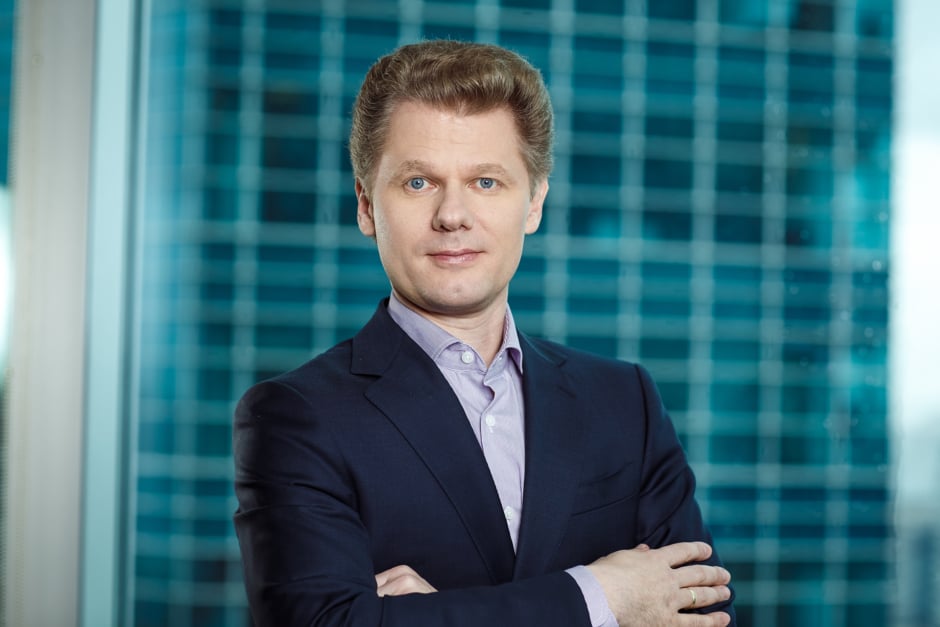Dmitry Schourov, Strategic Planning & Commercial Solutions Director, Pfizer, Russia
![]()
Interviewed by Louise Rogers | @EMG_GOLD
![]()
We spoke to Dmitry at the eyeforpharma Marketing and Customer Innovation Conference, Europe 2018, on Russia’s rising presence within the pharmaceutical industry as well as his own experience within the sector.
Q: You have an interesting background, obtaining both a PhD in Biocatalysis and an MBA. How has your experience contributed to your success to take on a leadership position that oversees strategy?
A: Strategy is a science for the business, in my opinion. So, from this perspective a PhD in Biocatalysis is very beneficial. I would also say that in both science and in strategy, you need to think a lot, read a lot, and speak a lot, so from this perspective it’s very relevant. The reason I left science was because molecular immunology wasn’t developed at that time in Russia. I had a choice: to leave Russia or to leave science, so I decided to leave science and live in Russia. There are a lot of different roles in both science and business that one can enjoy and excel in, which are comfortable with your personality and knowledge, especially with regard to marketing and strategy.
Q: The pharmaceutical landscape in Russia has changed in recent years, forecasted to soon emerge into the top 10 largest markets in the world. What lessons here can be learned by other developing pharma markets?
A: Firstly, that double-digit growth will not continue forever; one day this will be a single digit and then eventually it will slow down. Secondly, with emerging markets it is always a question of balance between global and local strategy; you need to find the right ratio between which global strategies will work with your markets and which strategies you will need to bring in locally. Working towards a 100% global strategy or a 100% local strategy is the wrong way to go. Additionally, you need to remember to assess this ratio every year and modify it according to the changing dynamics of the nation. Lastly, remember – if you have a choice of losing say €100,000 today, but this loss will result in a long-term gain, you have to think long-term. You need to build that long-term relationship with the market. Reputation is earned slowly and is based on not only what you do but how you do it, and we should always be mindful of that.
Q: You began your current position at Pfizer at a similar time to when Russia introduced the ‘Pharma 2020 Strategy’, which includes plans to increase domestic drug production. How did you and your team implement this strategy?
A: One of the main goals of Pfizer in Russia is to help to implement the state’s strategic objectives for the pharmaceutical industry development in the key directions: local production of medicines, transfer of technologies and expertise, local R&D development, and staff training.
In co-operation with its Russian partners, Pfizer localises a wide portfolio of products that solve top priority healthcare tasks. Particularly, Pfizer has completed the full transfer of technologies of our innovative pneumococcal vaccine Prevenar®13 to a local partner. Three products on CV, autoimmune, and antibacterial are being localised in St. Petersburg. Recently we have also started the localisation of a wide portfolio of sterile injectable drugs with our local partner NovaMedica at a new facility, which is going to be built in the Kaluga Region. These drugs are intended to be used to treat severe bacterial and fungal infections, cardiovascular, inflammatory diseases, and cancer. Collaborations like this are vital in order to bring essential local products to Russia, which will inevitably save lives. This is why we are so deeply involved in Russia’s 2020 strategy.
Q: How do you use your experience to analyse market trends and customer behaviour, in preparation for the successful launch of a new product?
A: Pfizer is entering an era of big launches; we have around 15 potential blockbuster drugs that will launch within the next 5 years – we should essentially become a launching machine. All the products are in the specialty area meaning that for each drug there will be a long pre-launch phase and a long preparation period to create awareness of the benefits these treatments could bring by the time of the drug’s registration. A manual will also need to be created for each drug, describing step-by-step, month-by-month, the procedures and activities needed alongside each product. When I talk about strategy as a science, it’s because there is a lot of data involved, there is a lot of planning and preparation involved, and you really need to consider each and every stakeholder. These are exciting times with exciting processes, and clearly it’s not only about analysing data but also looking at the global picture for each and every area.
Q: Your talk at eyeforpharma discusses the importance of integrating digital and traditional channels. How do pharma create platforms that engage HCPs in meaningful and personalised engagements?
A: Firstly, you need to enable your channels. Currently there are a lot of channels we use to interact with HCPs. When you enable these channels and look at their integration, you should have a perspective and understanding of each individual customer – what is the customer interested in? Which channels will work for that individual to satisfy their needs? Significant preparation is needed to integrate data when creating new platforms; you need to consider data analytics, creating a suitable environment, and working on capabilities within your organisation, which will need to change in both marketing and in sales. If we are talking about marketing for example, employees will need to learn how to create different forms of the same content, tailored to a specific channel. Your content should be interactive, it should enable simulation, and enable you to understand your customers better so you can make significant changes. You also need to have an understanding of when face-to-face interactions are more appropriate. You should be working with your team on all these elements, with the ambition to change their perception and thinking to a digital way of thinking. These are the major components in creating a common, integrated platform.
Q: Finally, what advice would you give to a professional aspiring to take the same career path as yourself?
A:Firstly, have a clear goal in mind. You need to know exactly what it is you want to reach so that you can best navigate your choices and decisions. Thereafter, always strive to be the best. You have to be doing more than others in your field and be delivering results that exceed expectations. For this you need to work more and always be open to learning more. Finally, make sure you are building a network. You need to be meeting those people that are going to enable you to get places. These would be my three pieces of advice to undefeatable success; having a goal, striving to be best, and networking.








